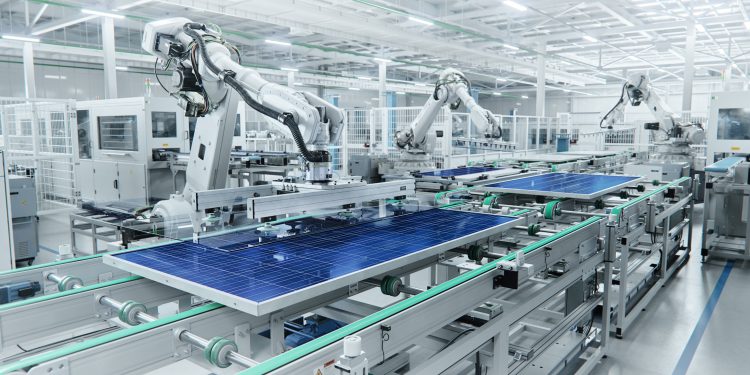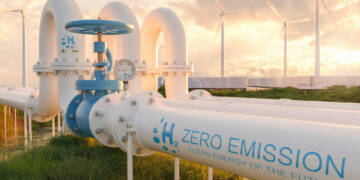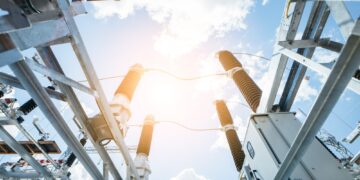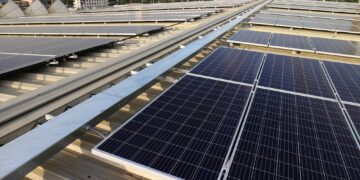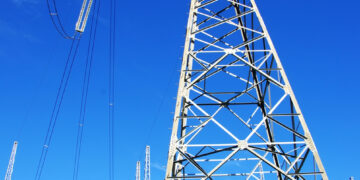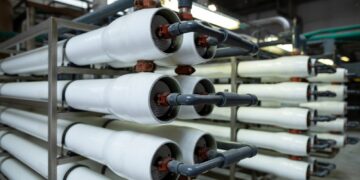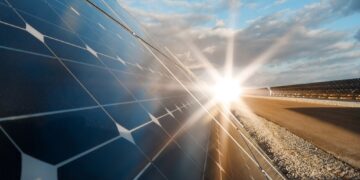In a significant move for the solar sector, JinkoSolar, a leading producer in the industry, has announced its plans to establish a state-of-the-art 10GW n-type solar cell and module manufacturing facility in Saudi Arabia. This ambitious project is the result of a joint venture forged between JinkoSolar Middle East, the Renewable Energy Localization Company (RELC) – an arm of the Saudi Public Investment Fund – and Vision Industries (VI), a firm invested in Saudi clean energy projects and supply chains. Both JinkoSolar and RELC are set to own a 40% stake each, with VI holding the remaining 20%.
The launch of the manufacturing site represents a substantial investment of approximately US$1 billion, which will be sourced through a blend of internal and external financial means. Although the timeline for the development and construction is contingent on market dynamics, once at full capacity, the facility is expected to churn out 10GW of n-type cells and modules annually.
Although JinkoSolar has not specified the exact n-type technology to be utilized, the company has a history of producing tunnel oxide passivated contact (TOPCon) n-type products. As per their Q1 2024 financial statement, JinkoSolar envisions n-type products comprising 90% of its global production capacity by year-end, marking a transition from the older generation p-type cells and modules. The International Technology Roadmap for Photovoltaics (ITRPV) report also predicts that TOPCon will command over half of the solar market share in 2024.
The chairman and CEO of JinkoSolar, Xiande Li, has hailed this venture as a key achievement in their global expansion strategy. He believes it will bolster their manufacturing and distribution structure worldwide, thereby enhancing their competitive edge in the market.
JinkoSolar has already secured various substantial supply agreements for Saudi solar projects, notably with VI-owned ACWA Power. Additionally, other significant developments in the region include US-based Gamechange Solar’s recent plans for a 3GW tracker production unit in Saudi Arabia and GCL Energy’s intention to build a new polysilicon facility in the UAE.
The Chinese solar manufacturing landscape is presently facing market pressures, such as plummeting polysilicon prices, which affect companies like JinkoSolar. The financial outcomes for major Chinese manufacturers, including JinkoSolar, have revealed a downturn in profits. To counter the rampant capacity expansions and their impact, the Chinese Ministry of Industry and Information Technology (MIIT) has proposed increasing the minimum capital ratio for solar manufacturing projects to 30%.
